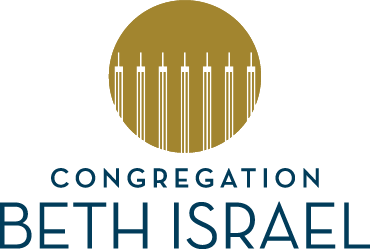“A Religious Question”

“A Religious Question”
From the desk of Rabbi David Lyon
In a world filled with hurt and hate, faith can lead us to many positive outcomes. In the Abrahamic traditions (Judaism, Christianity, Islam), our respective pathways to one God are particular, but they are not exclusive. We are all the progeny of one first man and bound by ethics that are not relative or trivial.
The Hebrew Bible, the Christian Bible and the Koran are human words inspired by faith that guide us to their highest ideals for love between human-kind and love between us and God. We ascribe to these words a sacred quality due to their remarkable journey from ancient times down to our own. Having succeeded in reaching us, the obligation of the faithful is to discern from their ancient and translated syntax and context the greatest lessons for our times. Today, we have more understanding about the natural world than any generation before us. We have defined universal boundaries for crimes against humanity, and we know that 2,500-year-old prohibitions against some sins bear little if any resemblance to the environment in which we think we find them, today.
Faith in the right hands wasn’t supposed to provide only the right answers. Faith in the right hands was also supposed to provide the right questions. Our sacred books, filled with ancient words in translation, take us on a journey of history, sociology, religious thought, economics, sexuality and other subjects that should pique our curiosity constantly. The sacred quality of our Bibles is in their enduring ability to raise timeless questions for every generation so that they can find answers that enable them to maintain, not an ancient standard of times gone-by, but benchmarks that reveal the greatest human freedom and potential ever known to humankind.
In the face of hurt and hate, Jewish history and Holocaust studies, in particular, have taught us not to ask where was God, but rather, where was humankind? Where are the people — parents, teachers, preachers, officials — who wield power to make a difference? For the first time in history, our children are growing up in a world that we’re learning about from them through technology. But the best lessons about how to address the world’s complexities, technologies and stubborn prejudices are still found in books of faith bequeathed to us from ancient peoples who also struggled with matters of the human experience.
If I could ask our ancient ancestors a question, I might ask, “Is this what you expected us to do with your books of faith, today?” We might all ask, “‘What can sacred texts teach us about our duty to each other in a world of unprecedented technology, growing violence and unyielding discrimination?” I believe that a good answer isn’t without faith, and that the best answer will also require moral courage. God is waiting for us to intervene. At Congregation Beth Israel, multiple ways to engage are active and ongoing even during the pandemic. Reach out to us. We’ll reach back to you.
L’Shalom,
![]()
(Adapted and reprinted by request)
